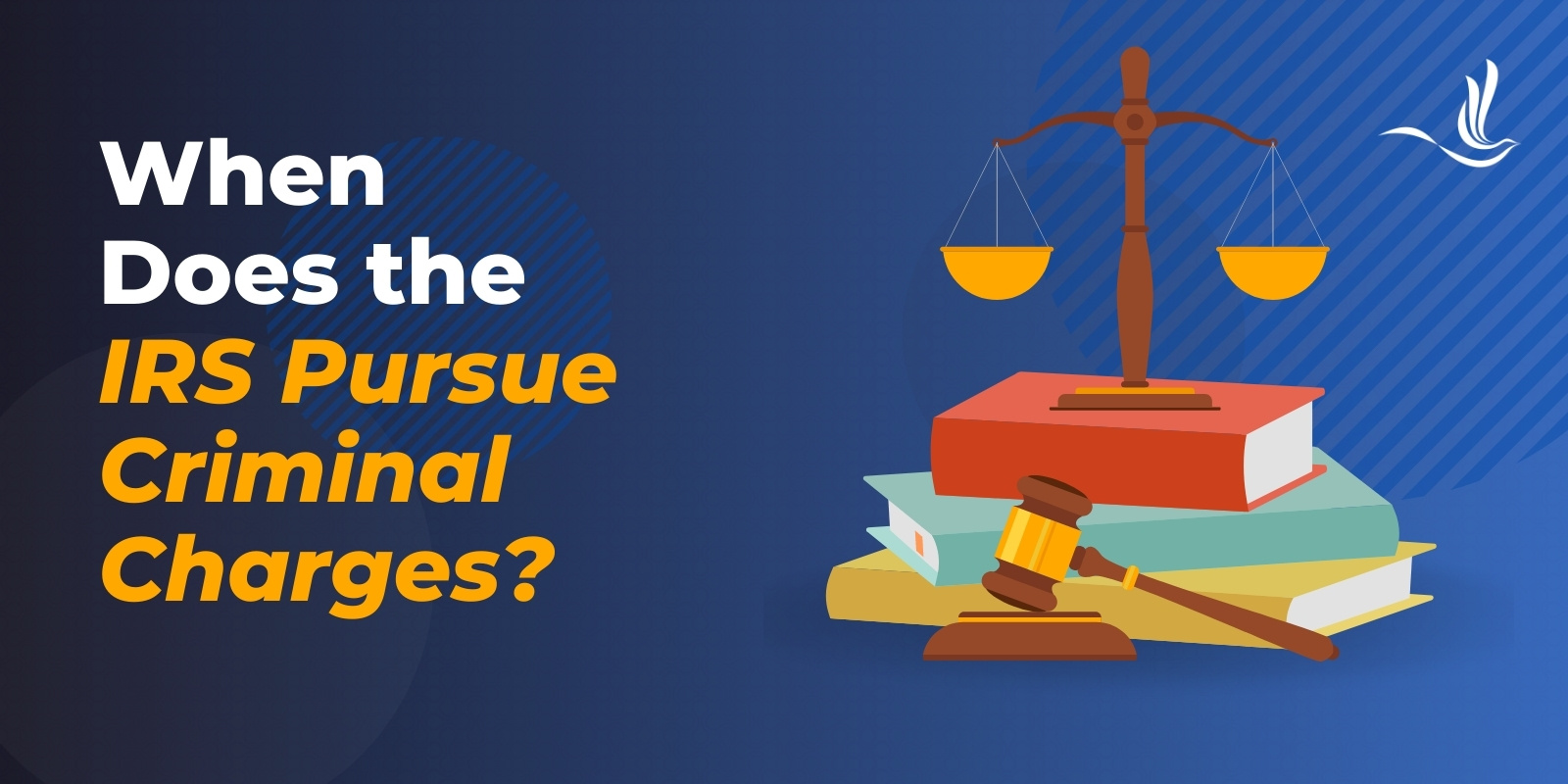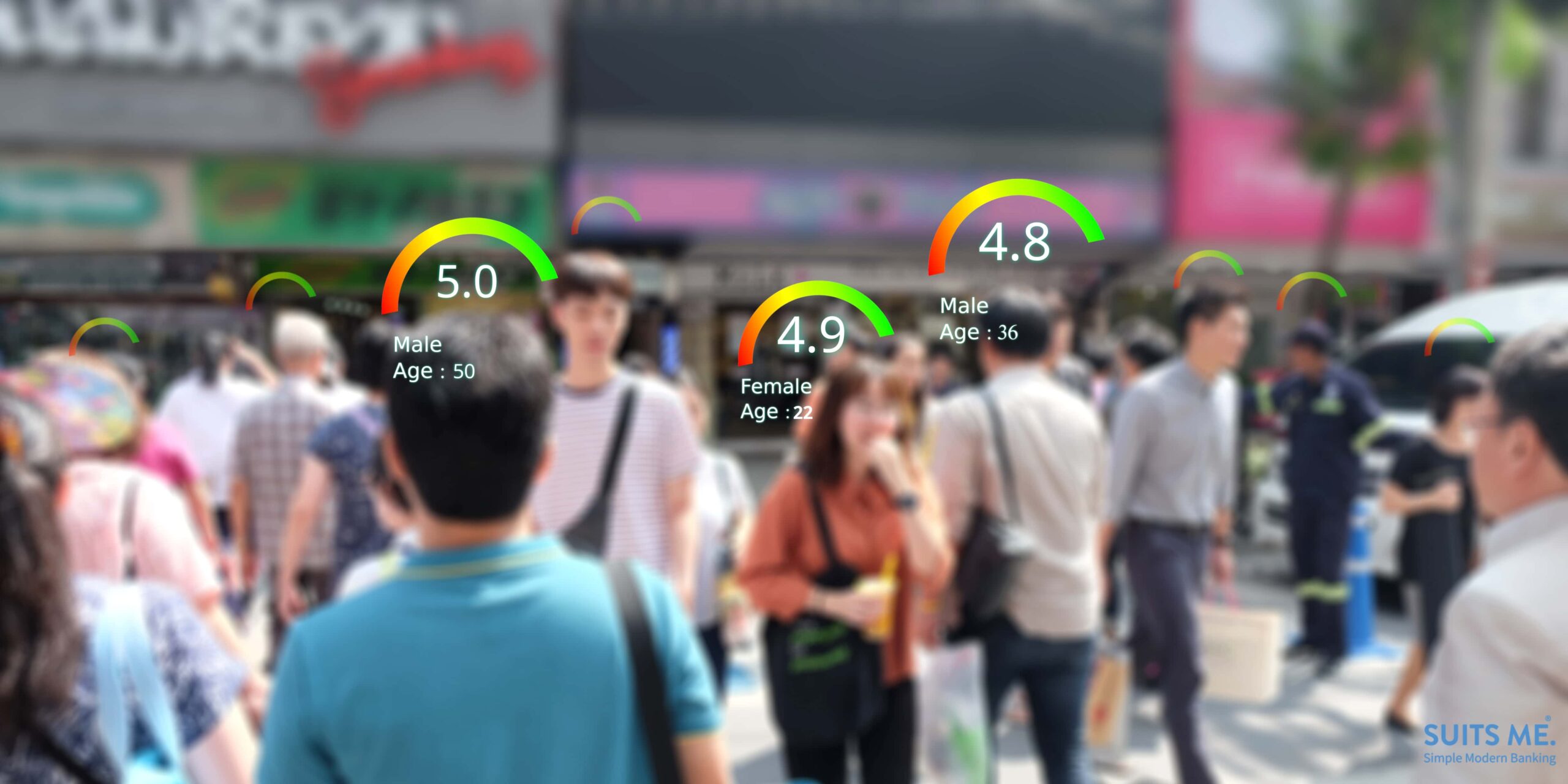Key Takeaways:
- Most IRS interactions are civil, but willful violations of tax law—such as fraud, evasion, or false returns—can lead to criminal charges.
- Common triggers include underreporting income, repeated failure to file, payroll tax fraud, and structuring transactions to avoid reporting rules.
- To pursue charges, the IRS must show intentional wrongdoing, not just honest mistakes or negligence.
- Once a case is referred to the DOJ and accepted, prosecution is likely—about 90% of cases result in conviction.
- Penalties can include prison time, hefty fines, restitution, and long-term reputational damage.
- Avoid criminal exposure by filing accurately, using trusted tax professionals, and responding to IRS notices promptly.
- If under investigation, seek legal counsel immediately and do not attempt to hide or destroy records.
Tax evasion and tax fraud are federal crimes. Both involve the willful attempt to either evade the assessment or the payment of taxes. But at what point does the IRS pursue criminal charges for these actions? What consequences are included in the criminal charges? How does one prevent these charges from being brought upon them? Here’s what you need to know about how and when the IRS pursues criminal charges against a taxpayer.
What Triggers IRS Criminal Investigations?
The IRS typically does not pursue criminal charges unless you exhibit a pattern of intentionally breaking tax laws, or when there is evidence of willful violations of tax laws. In other words, these cases typically involve conduct that goes beyond honest mistakes or negligence.
Common Triggers for IRS Criminal Action
Some red flags that may trigger criminal investigations include:
- Significant underreporting of income: For example, failing to report large amounts of cash income from a side business.
- Repeated failure to file tax returns: Ignoring tax obligations for several years in a row.
- Submitting false documents: Fabricating receipts or deductions to reduce tax liability.
- Payroll tax fraud: Withholding payroll taxes from employees but failing to remit them to the IRS.
- Structuring transactions: Breaking up cash deposits to avoid IRS reporting thresholds (typically $10,000).
Willful Noncompliance vs. Honest Mistakes
The IRS makes a clear distinction between taxpayers who make honest mistakes and those who intentionally try to deceive the government. Criminal charges generally require proof that the taxpayer acted willfully — meaning they knew the law and deliberately chose to break it.
Types of Tax Crimes the IRS Prosecutes
The IRS Criminal Investigation (CI) division investigates a variety of financial crimes, often in collaboration with other federal agencies. Some of the most prosecuted tax crimes include the following.
Tax Evasion (26 U.S.C. § 7201)
Tax evasion involves any deliberate act to evade or defeat a tax obligation. This could include hiding income, inflating deductions, or using offshore accounts to conceal earnings. A conviction can result in up to five years in prison and a fine of up to $250,000.
Willful Failure to File a Return (26 U.S.C. § 7203)
Not filing a required tax return, especially over multiple years, may lead to criminal prosecution. Each year not filed can carry its own penalties.
Filing False Returns (26 U.S.C. § 7206)
Falsifying information on a tax return, such as claiming fictitious dependents or fraudulent deductions, is a criminal offense.
Employment Tax Fraud
Employers who fail to submit employment taxes withheld from employee paychecks can face criminal prosecution. This is viewed as theft from both the employee and the government.
Offshore Account Violations and FBAR Noncompliance
Taxpayers must report foreign accounts holding more than $10,000. Willfully failing to file an FBAR (Report of Foreign Bank and Financial Accounts) can lead to criminal charges.
How Does the IRS Decide to Pursue Criminal Charges?
The decision to pursue criminal charges involves a thorough and often lengthy process.
IRS Criminal Investigation (CI) Division’s Role
CI agents investigate potential tax crimes using techniques like surveillance, informants, and forensic accounting. If they find sufficient evidence of wrongdoing, they prepare a report for the Department of Justice (DOJ).
Referral for Prosecution
Only after the DOJ reviews the case and agrees to prosecute will formal criminal charges be filed. This ensures that only the most serious violations result in criminal trials.
Criteria Considered
Factors influencing the IRS’s decision to pursue criminal charges include:
- Strength of the evidence
- Amount of tax loss to the government
- The deterrent effect of prosecution
- The taxpayer’s history and behavior
Typical Timeline of an IRS Criminal Investigation
- Initial audit or tip-off
- Referral to CI and investigation begins
- Evidence gathering (subpoenas, surveillance, etc.)
- Referral to DOJ
- Grand jury indictment
- Trial and sentencing, if convicted
In FY2023, the IRS CI division initiated over 2,676 criminal investigations and identified more than $37.1 billion in tax and financial crimes, with a conviction rate of 88.4% on cases accepted for prosecution.
What Are the Penalties for IRS Criminal Convictions?
Tax crimes carry serious consequences that can affect every aspect of a person’s life.
Fines, Restitution, and Interest
Those convicted of tax crimes may be required to pay significant fines, repay the government (restitution), and cover interest on unpaid taxes. You can be fined up to $100,000, or up to $500,000 for corporations. If you are found guilty of filing false tax returns, you can be fined up to $100,000.
Prison Time
Depending on the offense, prison terms can range from one year for minor violations to five or more years for more serious crimes like evasion or conspiracy. The average jail sentence for tax evasion varies between three to five years. If you are found guilty of filing false tax returns, you can face up to three years in prison.
Reputational and Professional Damage
A criminal conviction can lead to loss of professional licenses, employment, and personal reputation. For professionals like accountants or attorneys, it can be career-ending.
Examples of Real IRS Criminal Cases
Here are some examples of real-life IRS criminal cases, including their outcomes.
Wesley Snipes – Failure to File Tax Returns
Actor Wesley Snipes was charged with three misdemeanor counts of willful failure to file federal income tax returns from 1999 to 2001, despite earning millions during that time. He was acquitted of felony tax fraud but convicted of the misdemeanor counts. Snipes was sentenced to three years in prison, which he served from 2010 to 2013. The IRS had initially claimed he owed over $17 million in back taxes.
Michael Avenatti – Tax Fraud and Embezzlement
Attorney Michael Avenatti was convicted on multiple counts including wire fraud, tax evasion, and bankruptcy fraud. He failed to pay payroll taxes for his law firm and used client funds for personal expenses. He was sentenced to 14 years in federal prison in 2022 and ordered to pay $10 million in restitution to clients and the IRS.
COVID-19 Relief Fraud (Multiple Cases)
In the aftermath of the COVID-19 pandemic, the IRS Criminal Investigation division pursued many cases involving fraudulently obtained PPP loans. These included fake businesses, inflated payroll numbers, and the use of loan proceeds for luxury goods and vacations. As of FY2023, the IRS had investigated over 1,400 cases, with 98% conviction rates, and recovered millions in restitution and forfeited assets.
How to Avoid Criminal Tax Charges
- File Timely and Accurate Returns: Avoid errors by filing on time and double-checking all information.
- Work with Reputable Tax Professionals: Certified tax preparers and attorneys can help ensure compliance.
- Respond to IRS Notices Promptly: Ignoring IRS letters can escalate issues. Always respond promptly and keep records of your communications.
- Seek Legal Help Early: If you suspect you’re under investigation, consult a tax attorney right away to protect your rights.
What to Do If You’re Under IRS Criminal Investigation
- Do not destroy records: Doing so can result in obstruction charges.
- Hire an experienced tax attorney: They can negotiate with the IRS and help build a defense.
- Consider voluntary disclosure: Coming clean before charges are filed may reduce penalties.
- Know your rights: You have the right to remain silent and to an attorney.
Frequently Asked Questions
Q: Does the IRS really press criminal charges?
A: Yes. In cases involving willful fraud or evasion, criminal charges are pursued. Honest mistakes or inability to pay usually result in civil penalties.
Q: How do I know if I’m under IRS investigation?
Signs of an IRS criminal investigation may include special agent visits, subpoenas, or being contacted by someone identifying as part of IRS CI. You won’t receive a typical IRS notice.
Q: Can I go to jail for not filing taxes?
Yes, willfully failing to file tax returns is a federal crime. If convicted, you could face up to one year in jail for each unfiled year.
Q: What is the IRS CI conviction rate?
The IRS Criminal Investigation division has a conviction rate of about 90%, one of the highest among federal law enforcement agencies.
Tax Help for Those Who Owe
Although criminal tax prosecutions are relatively rare, the IRS takes willful violations seriously. With a conviction rate of around 90%, once a case reaches prosecution, the chances of walking away unscathed are slim. Staying informed, filing honestly, and responding quickly to issues is the best way to avoid criminal charges. When in doubt, consult a tax attorney for help. Optima Tax Relief is the nation’s leading tax resolution firm with over a decade of experience helping taxpayers with tough tax situations.
If You Need Tax Help, Contact Us Today for a Free Consultation
Publisher: Source link










